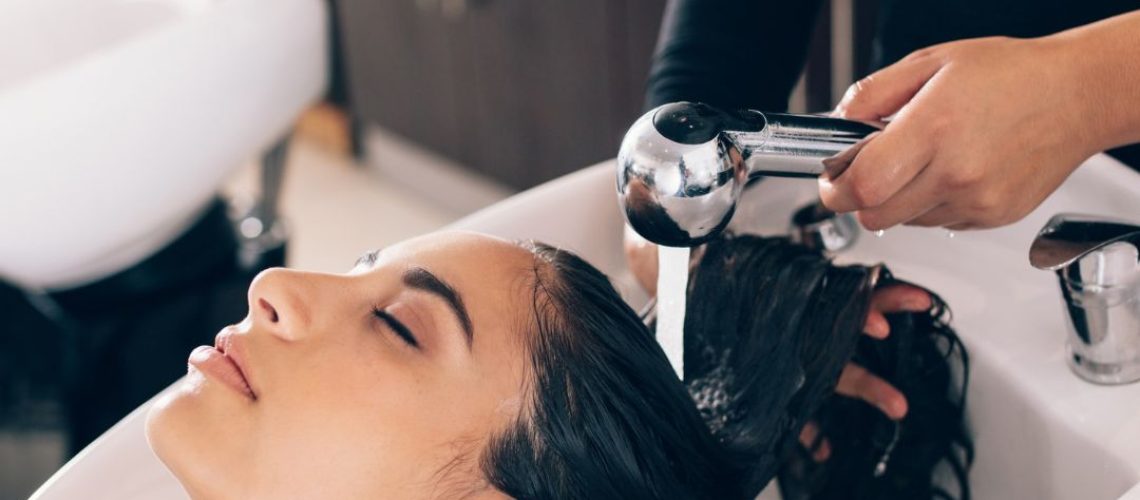The heads of the world are home to an array of incredible hair types. From long and silky to short and tousled, straight, curly, coily and kinky. Whatever your hair type and texture, it deserves a whole lotta TLC.
There are many schools of thought about the appropriate way, length of time and frequency you should wash your hair, and this can vary depending on hair type. One of the most popular hair washing methods is the co-wash.
Commonly used for dryer hair types, such as curly hair textures, co-washing has become an extremely popular hair cleaning method to maintain luscious and healthy locks.
What is a co-wash?
Co-washing is a method of hair maintenance that involves washing your hair with only conditioner and ditching the shampoo. There have been a lot of debates when it comes to co-wash vs shampoo, but many have found co-washing to be an extremely beneficial way of maintaining their mane.
It has become an extremely popular method amongst the curly hair community, as the dryer texture of curls drinks up the conditioner like there is no tomorrow. And going cold turkey on shampoo, sulphates, and other curl-affecting chemicals has proved to be effective for many.
What are the benefits of co-washing?
Sulphates can be found in the majority of high street brand shampoos, and while these detergents are effective when it comes to effective hair cleaning, these harsh chemicals can strip hair of its natural oils and therefore interfere with natural moisturising processes, leaving the hair brittle and dry.
By only using conditioner on your hair, you are on a path to softer and more lustrous hair that is less prone to frizz and dryness. While co-washing is still a firm favourite method for curly girls and guys, co-washing has been recognised as a beneficial practice for pretty much any hair type and texture.
Why not give it a try and see the results for yourself? You will find the right products and routine for you, and spending some time getting up close and personal with your hair will give you more insight into the needs or challenges of your unique locks.
Is co-washing right for extensions?
Co-washing has proved effective on natural hair, but what about on extensions?
The long and short of it (pardon the pun) is that co-washing is actually the recommended method of cleansing when it comes to caring for your extensions.
When co-washing your natural hair or extensions, it is important to choose a conditioner that doesn’t contain silicones. These chemicals will make your hair shiny in the short-term but can cause bad build-up as time goes on, leaving hair dull and damaged.
Could hairdressing be the career for you?
Do you have a flair for hair? A career in hairdressing could be your calling!
Whether you are looking for hairdressing courses for beginners or if you have previous hairdressing experience, New Zealand Beauty School is here to support you. Why not check out our hair extensions course, giving you the freedom to exercise your creative flair whilst not being limited to hair length!
The benefits to studying a hair styling course online are endless – our 24/7 online learning system allows you the flexibility to work your studies around your schedule and get to grips with your craft from the comfort of your own home. We’ll even send you your own custom-made kit with everything you will need to get started.
This comprehensive hairdressing course online in New Zealand gives you the fundamental theoretical and practical skills that you will need in order to deliver high-quality, personalised services as a hair extension technician. You will master the different hair extension installation methods, as well as be equipped with essential hair extension aftercare and maintenance knowledge.
Our course includes lessons on:
- tape wefts
- custom tape design
- nanobeads
- microbeads
- flat-track wefts
- beaded wefts
- invisible wefts
- how to appropriately use and install fusion, braided wefts and temporary methods such as clip-ins, wigs and fringe pieces.
Hair extensions remain an extremely high-demand salon service for hairstylists, so why not take advantage of this demand and get your career off to a flying start with our Certificate in Hair Extensions.
